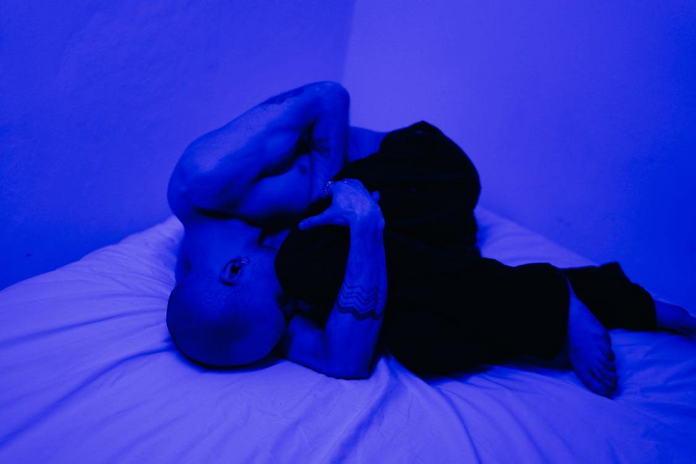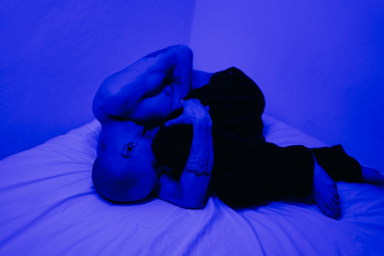Movember is almost over, but men struggle with their mental health twelve months a year. Approximately 4,000 Canadians commit suicide per year; amongst those who take their lives, 75% are men. These statistics are nothing short of alarming, yet why is it that men face such a drastic disparity with respect to their battle with mental health than any other gender? You guessed it: society and their attitudes toward gender roles. For as long as I can remember, I’ve always been told that women are meant to take care of the house and the children, while men are supposed to be the “manly” breadwinners. Women are ‘emotional and overly sensitive’, but god forbid a man shows his feelings. I’ve had to un-learn these expectations over time, but many people all over the world still unfortunately believe and abide by these values.
In honour of Movember, I spoke with four male-identifying post-secondary students about their experiences with mental health and how the stigma around men’s emotions has impacted them personally. Here’s what they had to say.
* Names changed for anonymity
Do you currently or have you ever struggled with mental health issues?
“Yes, I have. I was diagnosed with an anxiety disorder and personality disorder at 21.”
–– Adam*
“I’ve never gone to a doctor for my depression and anxiety, but that doesn’t really matter when I know my mental health.”
–– Nash*
“Yes. I have in the past, and still continue to today.”
–– Patrick*
“I have struggled in the past to varying degrees.”
–– Jackson*

Have you ever tried to reach out to family members or friends about your mental health struggles?
“It’s difficult because I had the challenge of overcoming a mental health stigma as well as a cultural stigma. With my family it was more difficult because they were brought up believing that mental health was silly. It was not as tangible as, say, a broken leg. Because it was harder to define physically, it was not understood as important. In Asian Culture, mental health is something that gets sidelined for the values of duty and respect. However, my family is more liberal and are more willing to trade off traditional values with the learning of new things.”
–– Adam
“I talk to my closest friends about it sometimes, but mainly my friends that are girls because they’re just easier to talk to.”
–– Nash
“I have never reached out to my family––I have a sister who struggles with [mental health] a lot more than I do, and I could never put more of a burden on my parents.”
–– Patrick
“I have and it didn’t go very well. I often keep it to myself and a very small group of people I trust.”
–– Jackson
As a man, do you feel less comfortable speaking out about your mental health?
“I’ve always felt alienated as a “man” and understanding the expectations of a ‘man’. Growing up, my upbringing was understanding that men and women follow traditional roles, and compounded with the traditional Asian understanding of those roles created incredible rigidity in my childhood. The role of emotions in a man was that it was not something a man should be concerned about and that it was largely reserved for a woman’s affair. As a result, for a long time I felt the best description for how I understood myself was that I was physically a man, but mentally I understood and operated my emotions like a woman. It wasn’t until I entered a higher academic institution that I was able to freely express and understand myself; that I allowed myself to accept that, yes, I am a man, and yes, it is okay to have feelings and talk about them. So to answer your question––yes, I was uncomfortable, but not anymore.”
–– Adam
“There’s that weird stigma around it––some of my boys won’t take it seriously, or think I’m joking and clown me for it. I just keep it to myself and find help in people I know that care.”
–– Nash
“Yes, I do. One time I told someone about some feelings I had been having and they told one of my close male friends about it. That male friend then asked me about it and I denied it––they responded with, ‘yeah, I didn’t believe it, you don’t seem weak like that’.”
–– Patrick
“I feel like as a man, I’m meant to be strong and tough, and I think I am––it’s how I was raised. I don’t think that mental health is something to try and be tough or brutish about, but I do have the tendency to try and fight it. I’m not trying to be stubborn but often it can be frustrating to not be able to push through [mental struggles] like you can other things.”
–– Jackson

Do you feel you have access to adequate resources to seek help for your mental health?
“I think to define that has to start [with understanding yourself]. For me it was understanding, ‘how do I learn?’, ‘how do I respond to new challenges?’ and ‘how do I go about solving these problems’? I’m a very motivated, independent learner. I liked to see different schools of thought on mental health to see what the thought process was like, and to see if I could understand why they did what they did––then I could find parts that I could relate to, that I could latch onto. So, no I don’t feel like there are adequate resources for my mental health, but that’s because I haven’t and will never truly completely understand myself in the moment. I am excited to see the development of new things because I understand that may change everything.”
–– Adam
“I feel like there are tons of resources at my disposal, I’m just not using them.”
–– Nash
“There is always more that can be put out there for men and women who struggle. If more money was put towards helping fight mental health issues in society, the world would be a much better and safer place.”
–– Patrick
“I feel like the resources are there if you need them. Often I think schools could do better, but I don’t have that experience.”
–– Jackson
What is one thing you wish you could change about society’s attitudes toward men’s mental health?
“I want to believe in the goodness of people. I want to understand that at the end of the day, because we are human and because we share similar feelings, that we can connect with each other. For attitudes towards men’s mental health, I want people to be more empathetic. I just think the world can be a truly awful place, so why would I ever contribute to the bad? If there’s an opportunity to be good to someone today, I think we should take it.”
–– Adam
“It would be cool, as a dude, if people saw that we’re just as human and sensitive as the other gender[s] [are]. Like, we can still cry. Feelings still get hurt––I don’t know why everyone acts so hard and bottles it in.”
–– Nash
“I wish that people would be more open and understanding about how serious of an issue it is. There are so many men that I know who struggle even worse than I do, and I can’t even begin to imagine the amount that I don’t know. I wish people did not see men as weak or inferior to others just because they struggle.”
–– Patrick
“I wish people would stop thinking that all men’s approaches are the same. The truth is some people are tougher than others and some people need more support, and both are okay. “Men” aren’t just “men”––some are sensitive, some aren’t. If you want to support a person in their struggles, just be there for them––if they want to talk, they’ll talk. It’s all okay as long as they are supported in the end.”
–– Jackson

The world still has a long, long way to go in terms of equating men’s mental health struggles with women’s, but each small action goes a long way. I try every day to be there for everyone in my life, no matter their gender. I suggest you do the same. You never know who may need to talk, even if they don’t know how to start the conversation. Check on your friends. Always.
Some resources for men’s mental health
In Kingston: https://kingstonhsc.ca/mental-health-care/community-resources



